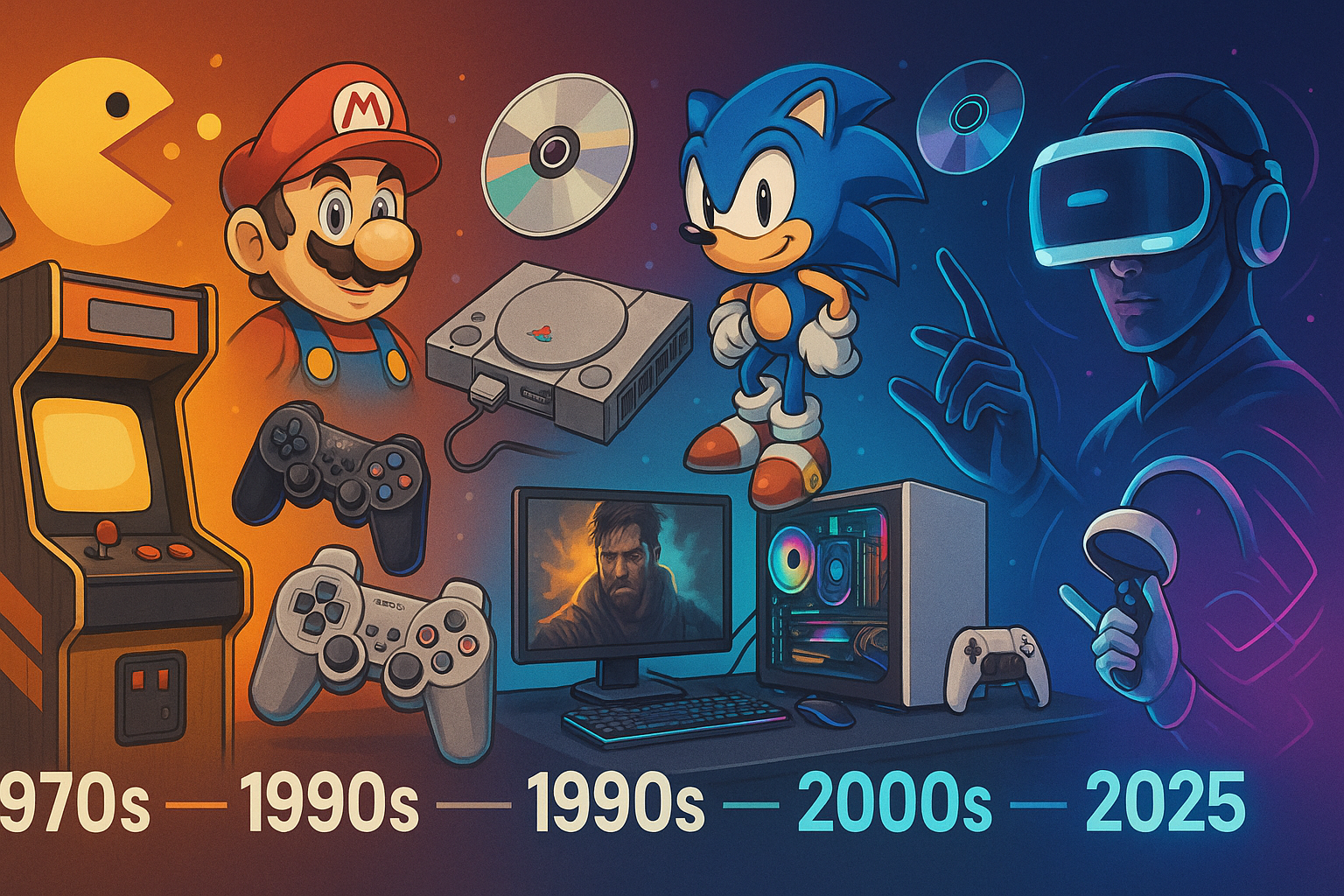
From its humble beginnings in scientific laboratories to becoming a global entertainment industry worth billions of dollars, video games have come a long way. In this article, we'll take you on a journey through video game history, from simple two-dimensional games to the immersive virtual worlds we see today, and look ahead to the future of this amazing industry through 2025.
Humble Beginnings: The Birth of an Industry

The roots of video games trace back to the 1950s and 1960s, when scientists began designing simple games on mainframe computers. These games were mostly academic experiments and weren't available to the public. But in 1972, everything changed with the release of Pong by Atari. Pong was a simple game that simulated table tennis, but it achieved huge success and sparked the video game revolution.
In the late 1970s and early 1980s, the video game industry experienced a major boom with the emergence of arcade machines and home gaming consoles like the Atari 2600. Games like Space Invaders and Pac-Man became global cultural phenomena, attracting millions of players of all ages.
The Golden Age and Evolution: From 8-bit to 3D

In the mid-1980s, Nintendo saved the video game industry from collapse with the launch of the Nintendo Entertainment System (NES). The NES introduced high-quality games like Super Mario Bros. and The Legend of Zelda, which established new foundations for game design and storytelling.
The 1990s saw a major shift toward three-dimensional graphics with the emergence of consoles like the Sony PlayStation and Nintendo 64. These systems allowed developers to create immersive worlds and realistic characters, leading to legendary games like Final Fantasy VII and Super Mario 64.
The Modern Era and Future: Online Gaming and Virtual Reality

In the 21st century, online gaming became dominant, with the emergence of massive multiplayer games like World of Warcraft and Fortnite. The rise of smartphones also led to the spread of mobile gaming, making games accessible to everyone.
Looking ahead to 2025 and beyond, the video game industry is expected to continue evolving at a rapid pace. Technologies like Virtual Reality (VR) and Augmented Reality (AR) are likely to become more mainstream, providing incredibly immersive and interactive gaming experiences. Artificial intelligence will also continue to play a larger role in game design, creating more dynamic worlds and smarter characters.
Conclusion
From its simple beginnings to its exciting future, the journey of video games has been an amazing journey of innovation and creativity. There's no doubt this industry will continue to surprise and amaze us in the years to come, and we're excited to see what the future holds for the world of gaming.
